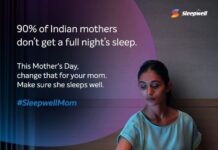Q: Neelam Chhiber, we have had this conversation for almost a decade now on how do we get more women entrepreneurs? I read out a whole host of numbers there and the last conversation that we had was in Davos where you were propagating the idea of moving towards a cooperative model. Explain to me where things currently stand and seriously in light of the learning’s from this COVID pandemic, do you believe there are more takers, there is more currency for that today?
Chhiber: I think the COVID has really revealed a lot of weaknesses and a lot of strengths in some systems. So industry as you have already shared really believed that women at the first mile, we don’t want to call it last mile, we don’t want to call it a bottom of the pyramid, that is the first mile are most vulnerable sitting in rural India.
If we have to really empower them, and as you said they are the backbone of our society finally, and if you have to see improved health, nutrition, education in vast numbers of Indian population, we would have to collectivize because it is very tough for these vulnerable women to run globally competitive businesses especially in an area which I deeply love which we call the artisanal sector, but we insist on calling the creative manufacturing sector. Yes, I think there is no solution, but to collectivize.
Q: Speaking of collectivization, I just wanted to get a quick word in on what has happened to the creative manufacturing space and perhaps on account of the manner in which the lockdown was implemented, this has been a space especially artisans, rural artisans that have been hit very badly. Can you take me though what you have been able to experience in the last few months and more importantly what the road ahead now looks like?
Chhiber: I would just say that thank god for being in India the crisis hit, Industree Foundation was secure, we have a lot of funding and a lot of assistance from USA. They have an initiative going with us called ‘POWER’ which is helping us build more collectives, we have some funding from HSBC CSR, Target Foundation. So our producers were secured. Through the most the distraught periods of COVID, they were having access to stipend and they were secured.
We really felt very terrible of what could be happening to the rest of the sectors. So we are very happy to say that I think there are 1,000s of young professionals, volunteers, designers, social entrepreneurs who came together. There are a bunch of movements out there today, one is Creative Dignity, one is Hand For Handmade, there are a bunch of them.
A lot of people and we have of course Kirti with us who has partnered her site and all of us have pushed up diagnostics, reached out. I think Creative Dignity itself, the volunteers have worked terribly hard. They have pushed the diagnostics out, have had responses from more than 1,200 organizations impacting 22 lakhs artisans and we have unearthed that there is in between Rs 200-500 crore of unsold stocks just with these groups and then we are helping them to turn digital, helping them build catalog and on boarding them on to sites like Okhai, iTokri, GoCoop, Amazon Karighar.
Everyone is trying their best to help the sector because let us face it they all had built stock — now we have festive season coming up, how is money going to flow in their economy when entire brick and mortar sales has stopped.
Q: Anju let me ask you about what you have been able to see as far as Wingreens is concerned. For the benefit of our viewers the ‘win’ in Wingreens stands for the Women’s Initiative Network. We have seen resilience as far as the FMCG market is concerned and now with this whole business of vocal for local and a conscious move towards regional brands, local brands, how do you see that impacting your business?
Chaudhri: It is very interesting. Actually we have seen a good growth during the COVID times in terms of demand and that is mainly because our business is to do with cooking at home and making things easier for people who wish to cook at home.
But on the women’s side really Wingreens was a movement rather – became an organization to empower women and we actually created a pilot where we wish to break the deadlocks in the farming sector and we worked on various issues out there with women actually and then connected it with processing. So, we created a very simple processing model which was scalable, which was agile and now that can be replicated across rural areas.
We can actually start with primary level and at times even secondary level processing and that helps the customer get much fresher food because you seal-in the freshness. You can create employment for more women, you can even create entrepreneurship models out there and bring the food into the cities which the customers enjoy.
What is interesting about our model that we make hummus, pesto, salsa, and stuff but all international foods or products which are made by women who were at one time never allowed to step out of their ghoonghats, they were not allowed to step out of their homes. We brought them out, we skilled them, we taught them about food safety, food hygiene and food processing and today all our products, the fresh products particularly, are made by them. So, our women were not allowed to step out of their ghoonghat, but now they have travelled the world of cuisine.
Q: Kirti let me put that point to you, both Neelam and Anju talking about the need for new ways of looking at business models, collectivization is something that Neelam spoke of, Anju spoke of the model that they have been able to setup which is replicable and scalable. In light of the experience that you have personally had with Okhai and what you have seen around you, what do you believe is the order of the day today?
Poonia: March was when the lockdown hit us and there was a sense of sisterhood. All of us had known each other for so long. Okhai was a B2C model website that could reach a lot of customers. So we thought that why not share all of our customers with all of the brands. The first brand we launched, we saw that people were really taken to the idea that we were sharing our platform and sharing products from all of these artisans who otherwise were caught up with all of their inventory because the physical retail had come to a standstill.
In cases where we could not bring artisans online, we just simply shared their phone numbers. It was a very organic move from a product company to a marketplace. We were launching one brand a week and now we are almost launching one artisan group every day.
So, I think that it has been a journey of transforming the organization and consolidating the industry in a way that would not have happened if COVID didn’t happen because in another world we would have thought of each other as competitors, but here there is a lot of growth and togetherness.
Q: Yours are stories of entrepreneurship, of aspiration, but yours are also stories of sisterhood and I think each and every one of you has been able to exemplify and amplify that message. Rebecca take me through what you now intend to do in light of the experience that you have had so far and what is it that you believe needs to be done both at the government level as well as from a private sectors perspective to ensure that this gets the momentum it needs?
Mushran: I think this whole pandemic has been a huge learning experience for us. It is something that nobody was prepared for. Being a business that is completely self-funded, we had a really hard time and had to infuse some funds into the business to make sure that the women had enough to keep their families going. That is the commitment that we all make with a social impact business. Neelam, Anju, Kriti, it is such an honour to be here with them, what you have been able to create with your businesses.
We are still a small business and our impact has been restricted to the two villages that we work with, but we have been able to create an ecosystem within that, not just with the women, but also the transportation, the suppliers, the vendors and that is something that we replicated to the second village. The scalability of this business, the way we are doing it, is not easy.
As our Founder, my mother-in-law Linnet Mushran always tells that she sometimes feels like our inheritance has been blown up on the business, but you cannot put a price on these women’s’ livelihoods, on the number of households going from just 20 women to 150 women in these villages. You cannot put a price on that.
So, what we have learnt from the pandemic is, for the past 20 years we have been an offline business, we have been at your grocery stores, everybody’s been buying Bhuira in 2 states — Himachal and Delhi, but over the last couple of years we have moved pan India because of our partnership with ‘Tree Of Life’ which is our distribution partner, also a women led business run by Harshada Gandhi. I think what is important here is for entrepreneurs to tie up with people who are committed to the cause, exactly what Kirti said. That is the only way for us to move forward is the sisterhood.
Corporate Comm India (CCI Newswire)































